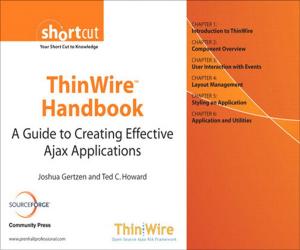Securing VoIP Networks
Threats, Vulnerabilities, and Countermeasures
Nonfiction, Computers, Networking & Communications| Author: | Peter Thermos, Ari Takanen | ISBN: | 9780132702300 |
| Publisher: | Pearson Education | Publication: | August 1, 2007 |
| Imprint: | Addison-Wesley Professional | Language: | English |
| Author: | Peter Thermos, Ari Takanen |
| ISBN: | 9780132702300 |
| Publisher: | Pearson Education |
| Publication: | August 1, 2007 |
| Imprint: | Addison-Wesley Professional |
| Language: | English |
In Securing VoIP Networks, two leading experts systematically review the security risks and vulnerabilities associated with VoIP networks and offer proven, detailed recommendations for securing them. Drawing on case studies from their own fieldwork, the authors address VoIP security from the perspective of real-world network implementers, managers, and security specialists. The authors identify key threats to VoIP networks, including eavesdropping, unauthorized access, denial of service, masquerading, and fraud; and review vulnerabilities in protocol design, network architecture, software, and system configuration that place networks at risk. They discuss the advantages and tradeoffs associated with protection mechanisms built into SIP, SRTP, and other VoIP protocols; and review key management solutions such as MIKEY and ZRTP. Next, they present a complete security framework for enterprise VoIP networks, and provide detailed architectural guidance for both service providers and enterprise users.
1 Introduction
2 VoIP Architectures and Protocols
3 Threats and Attacks
4 VoIP Vulnerabilites
5 Signaling Protection Mechanisms
6 Media Protection Mechanisms
7 Key Management Mechanisms
8 VoIP and Network Security Controls
9 A Security Framework for Enterprise VoIP Networks
10 Provider Architectures and Security
11 Enterprise Architectures and Security
In Securing VoIP Networks, two leading experts systematically review the security risks and vulnerabilities associated with VoIP networks and offer proven, detailed recommendations for securing them. Drawing on case studies from their own fieldwork, the authors address VoIP security from the perspective of real-world network implementers, managers, and security specialists. The authors identify key threats to VoIP networks, including eavesdropping, unauthorized access, denial of service, masquerading, and fraud; and review vulnerabilities in protocol design, network architecture, software, and system configuration that place networks at risk. They discuss the advantages and tradeoffs associated with protection mechanisms built into SIP, SRTP, and other VoIP protocols; and review key management solutions such as MIKEY and ZRTP. Next, they present a complete security framework for enterprise VoIP networks, and provide detailed architectural guidance for both service providers and enterprise users.
1 Introduction
2 VoIP Architectures and Protocols
3 Threats and Attacks
4 VoIP Vulnerabilites
5 Signaling Protection Mechanisms
6 Media Protection Mechanisms
7 Key Management Mechanisms
8 VoIP and Network Security Controls
9 A Security Framework for Enterprise VoIP Networks
10 Provider Architectures and Security
11 Enterprise Architectures and Security















